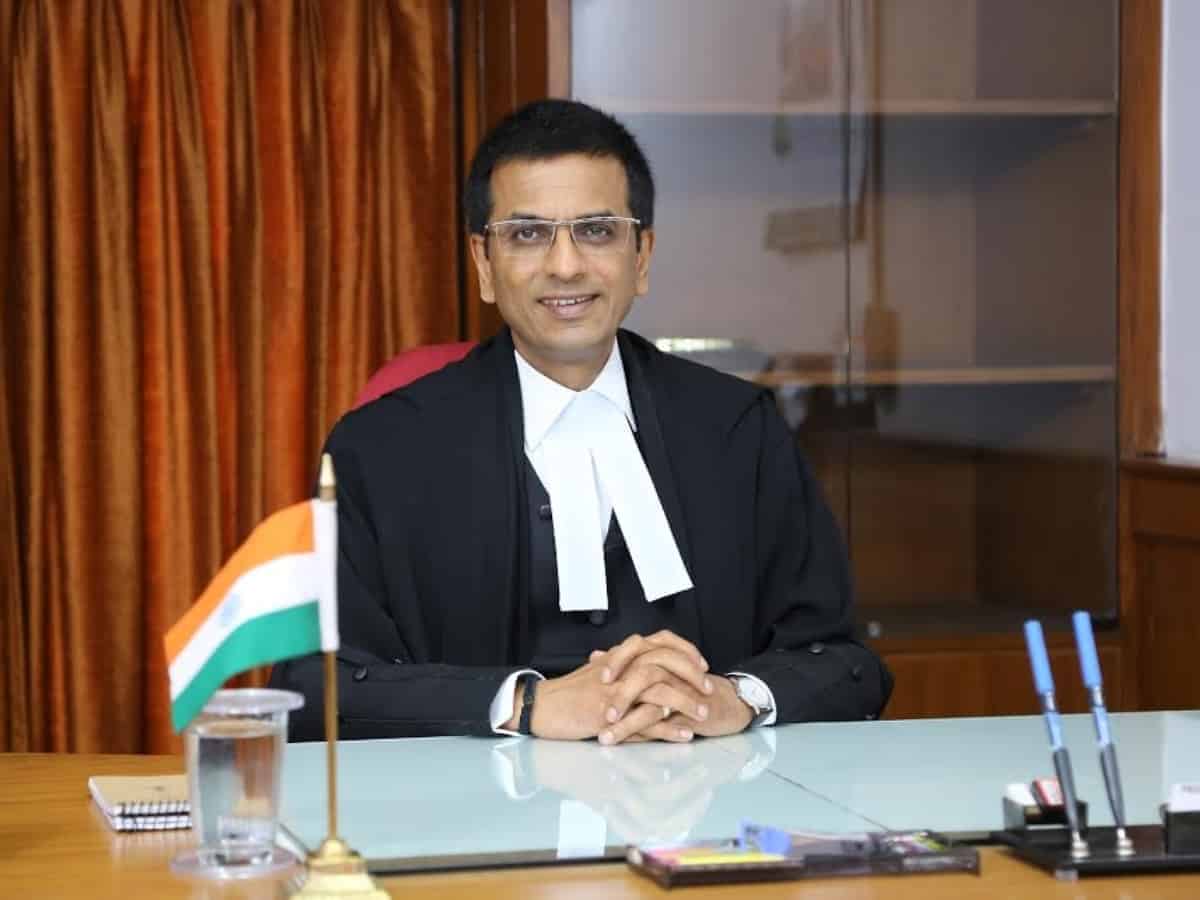
New Delhi: Underlining that the worth of a nation is determined by the status of its women, Chief Justice of India D Y Chandrachud said on Thursday that ascribing worth to women is primarily a men’s issue.
He also said “forward-looking” policies and judgements were needed to ensure that the benefits of social welfare measures actually reach the citizens.
He said there were excellent laws in India that were implemented in good faith, but in a country as vast and diverse, the real challenge was to use the transformative potential of democracy and the Constitution by converting them into “real realisation of rights” of people on the ground.
Observing that the worth of a family is determined by the status of women, he said, “So, in our march for the future, our worth as a nation will largely depend on the worth which we ascribe to women and ascribing worth to women is not a women’s issue.”
“Ascribing worth to women is primarily a men’s issue as well. So, I think we need to change our mindset before we can move the movement forward,” the CJI said at an event organised here by the National Commission For Women (NCW) and the National Legal Services Authority (NALSA).
Justice Chandrachud said the real worth of the work being done by the NCW and NALSA was to take the reach of justice to the doorsteps of people.
“In other words, justice becomes not just a sovereign function of the State but justice truly is regarded as a service which we provide to our citizens,” he said, adding technology was opening up limitless possibilities, new facilities and prospects for realisation of the rights of people.
The CJI said technology provides for transparency, a comprehensive record of everything that happens, and if properly wielded, it cannot be oblivious to the underlined inequalities in the system based on caste, class, religion, gender or variety of other positions in the society.
“In other words, what I want to emphasise is that a devil is always in the fine print and our mission whether in the NALSA or in the NCW is to ensure that not only should we lay down policies which are forward looking, for us as judges, not only we should lay down judgements that are forward looking, but what the NALSA tells us and what this movement tells us is that we have to go that extra mile in ensuring that all the benefits of social welfare actually reach out to our citizens,” he said.
Referring to cases which come up before the Supreme Court, the CJI said there were matters including where the under trial prisoners say they have not been released from jail for several weeks despite being granted bail.
“These are matters which are part of the daily work of the Supreme Court and that really is a clear indicator that marginalisation, whether it be in the form of gender, marginalisation, whether it be in the form of caste all too often poses a real barrier to the realisation of rights,” he said.
Justice Chandrachud referred to the variety of grievances with which citizens approach the apex court as the court of last resort.
“People who come to you with a sense of aspiration, people who approach you with a sense of hope, people who approach you with a feeling that there are institutions of governance which can perhaps move the way forward, move the needle in our quest to realise the achievement of justice,” he said.
The CJI said the work done by the NALSA and NCW has provided justice to people, who are in need of justice, by making them aware of their rights.
He was speaking as the chief guest at an event on the Legal Services Day.
During the programme, NCW mobile application ‘Her Legal Guide’, legal awareness programme for women at block level, and upgraded national toll free helpline number 15100 of NALSA were launched.
Supreme Court judge and Executive Chairman of NALSA, Justice Sanjay Kishan Kaul, apex court judge Justice Sanjiv Khanna and Union Law Minister Arjun Ram Meghwal were also present at the event.
